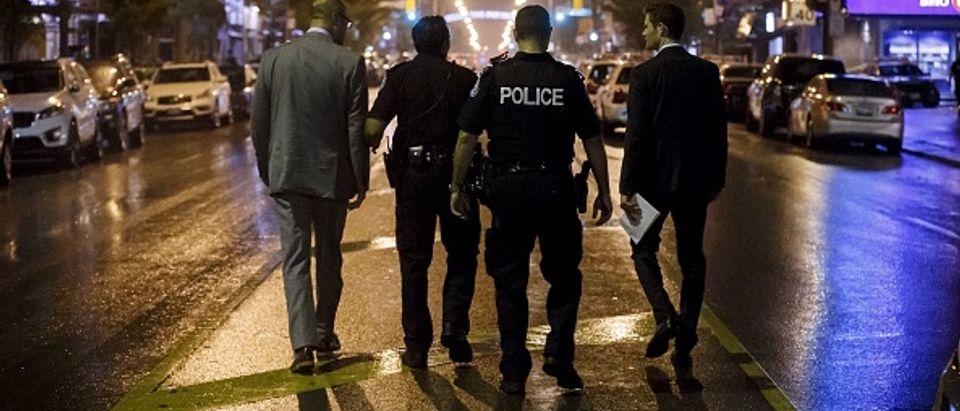Politicians from the largest city in the Canadian gun control stronghold of Quebec plan to put their weight behind a raft of severe gun restrictions this week. According to a report from Radio Canada International, the Montreal City Council is set to vote Monday to adopt a resolution that would echo the Toronto City Council’s call for new federal gun controls.
Following the shooting deaths of two people in Toronto’s Greektown neighborhood by an attacker with an illegally obtained handgun in late July, the Toronto City Council adopted a resolution supporting several federal and local gun restrictions. The measure called for a nationwide ban on all handguns and semi-automatic firearms, a prohibition on the at-home possession of firearms, shuttering the remaining shooting ranges and gun clubs in Toronto, and a local ban on the sale of handguns and “handgun ammunition” within the city.
Reports indicate that the Montreal resolution will push a similar agenda. The RCI item indicated that the Montreal measure will press Justin Trudeau’s federal government for a “nationwide ban on handguns and assault rifles.” The declaration will also call on the federal government “to impose enhanced background checks on owners and would-be owners of firearms.”
City Councilor Alex Norris, who is set to present the resolution, told the Canadian Broadcasting Corporation this week, “We don’t see any reason for private individuals to be authorized to own such weapons… These are weapons that are principally designed to kill people.” Norris also contended, “We want to send a message to the federal government that we need tighter controls on firearms to make our cities safer.”
According to the Montreal Gazette, the Montreal City Council is eager to pass the resolution Monday, as on Tuesday the Liberal-led federal government is set to begin a retreat in Nanaimo, British Columbia. Citing a federal government source, the publication noted that, “[c]abinet members will probably discuss gun control legislation there.”
Regarding how the resolution might influence Trudeau’s decision-making, earlier this month Public Safety Minister Ralph Goodale’s spokesperson Scott Bardsley indicated that the federal government was “open to all options.” Reiterating this sentiment on Wednesday, Trudeau stated, “[w]e are going to listen very attentively to, obviously, what the city council in Toronto has done, [and] what Montreal might do next.”
Canada’s leading law enforcement officials are less enthusiastic than the politicians about the prospect of further gun controls. On Wednesday, newly-elected Canadian Association of Chiefs of Police President and Vancouver Chief Constable Adam Palmer has quoted by the CBC as saying that Canada’s current gun control regime is “actually very good.” The item also explained that the CACP is not seeking “any wholesale legislative changes” to the country’s gun laws. Summarizing some of Palmer’s comments, the news outlet reported, “[Palmer] says the issue isn’t law-abiding people who want to possess firearms, but rather people who are involved in criminal activity who obtain guns through illegal means.”
Under current law, in order to own a firearm in Canada an individual must obtain a Possession and Acquisition Licence (PAL). Acquiring a PAL is contingent upon completion of a firearms safety course, a background check, and appropriate references. In order to own a handgun or certain semi-automatic long guns (restricted firearms), an individual must complete further firearm training requirements. Restricted firearms are required to be registered.
Established in 1975, the Institute for Legislative Action (ILA) is the “lobbying” arm of the National Rifle Association of America. ILA is responsible for preserving the right of all law-abiding individuals in the legislative, political, and legal arenas, to purchase, possess and use firearms for legitimate purposes as guaranteed by the Second Amendment to the U.S. Constitution.


